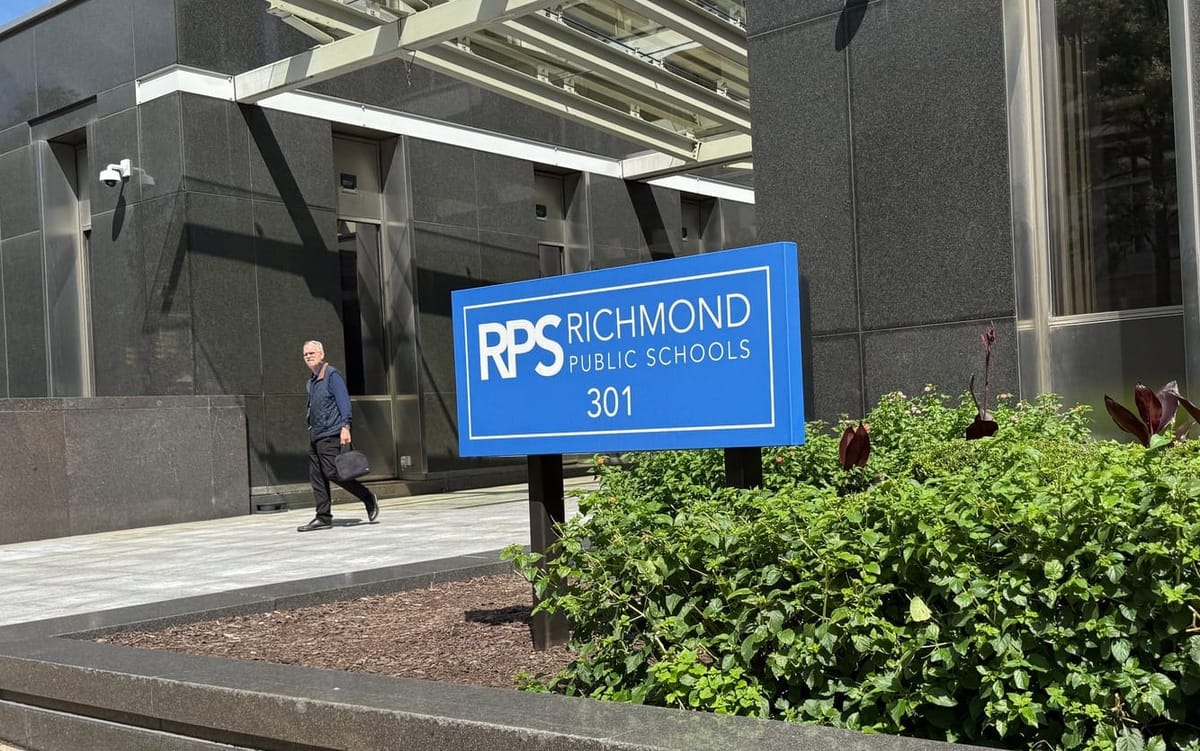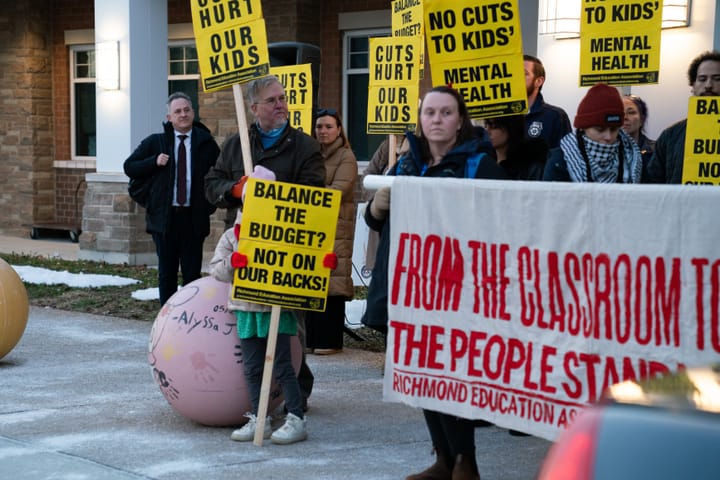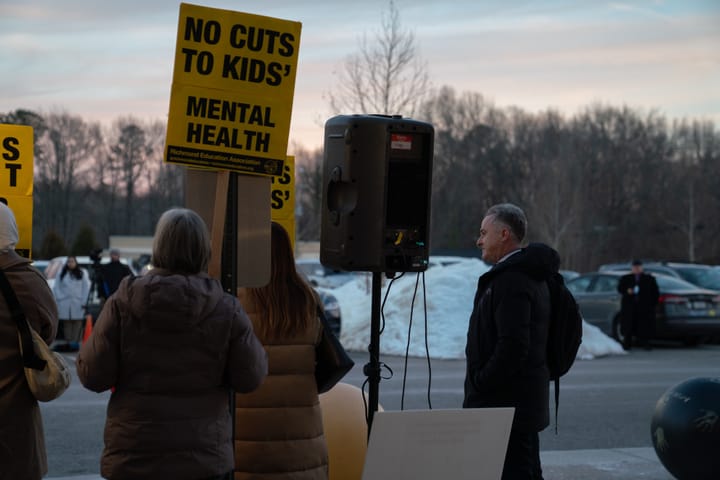
School Board votes yes on changes to collective bargaining procedures
A decision has been made.
After two months of back and forth between Richmond Public Schools’ unions and administrators over how the groups can negotiate on their contracts, the Richmond School Board voted 5-4 to accept administrators’ changes to the collective bargaining process.
Board members made the decision despite the majority of public commenters requesting that they reject the modifications. Those in favor of the change noted that they did not hear specifics on what changes union members were upset with during public comment.
It was a shift from the October meeting, where members appeared to be swayed by public comment.
“Shame! Disgrace!” yelled members while walking out of the room after the vote.
“If you wanted specifics, maybe listen to us when we speak!” yelled another member.
Some union members referred to Governor-elect Abigail Spanberger’s support for strengthening collective bargaining rights in Virginia. Speakers suggested that she will approve legislation Gov. Glenn Youngkin vetoed earlier this year. (Spanberger voiced support for collective bargaining on the campaign trail, but stopped short of committing to sign specific legislation.)
“This statewide framework would negate any of the proposed changes being made today,” said Jacob Neal-Helt, a social sciences teacher at Richmond High School for the Arts.
James Smith, president of Teamsters 592, did speak in favor of the changes, saying that the process went well and anyone saying otherwise was not in person at the meetings.
Superintendent Jason Kamras said that while all sides didn’t achieve everything they wanted, a good compromise was made.
“I do believe the draft that is before you will both serve our employees well, protect the school system financially and uphold both the spirit and the letter of collective bargaining here in Richmond,” he told the Board a night before the vote.
Shortly after the passage, Ali Faruk (3rd District) – who voted against the changes – proposed a motion to create a workgroup that would include representatives from the Board, administration and the unions that would meet over the next 6-8 months to come up with fully agreed changes for the collective bargaining process that can be voted on next school year. That was rescinded after members said specifics of the workgroup needed to be explored before voting. It isn’t clear when exactly Board members will discuss implementing the workgroup, but discussions are expected to continue.
Board members who were against the changes referred to previous comments they made at the October meeting, emphasizing that union partners are still unhappy with how the process went and how little time they had.
“From the very beginning I stated that I thought a month was not enough, and I’ve repeated that more than once,” said member Cheryl Burke. “I listened tonight. I read my emails. And I think everyone has well intentions but we have not reached consensus… Something just isn’t right at this point.”
The four members who voted against were Faruk (3rd District), Wesley Hedgepeth (4th District), Shonda Harris-Muhammed (6th District) and Burke (7th District).
On the other hand, supporting members – Matthew Percival (1st District), Katie Ricard (2nd District), Stephanie Rizzi (5th District), Emmett Jafari (8th District) and Board Chair Shavonda Fernandez (9th District) – said the compromise provides wins for both sides.
“There’s nothing present in the proposed CBA that destroys democracy, removes workers rights, has or makes [the grievance process] difficult” said Jafari, who flipped from a no vote in October to a yes vote on Tuesday, allowing the measure to pass.
Changes to the collective bargaining process have been a hot topic since they first appeared in late September. Unions said that RPS administrators met with the groups to give a “high-level” overview of the revisions without sharing the exact language of them. Those revisions were presented right before the School Board was set to vote on it in October and before the collective bargaining process would have begun.
Union members said the push to make the changes was concerning, felt rushed and was not inclusive of their thoughts.
Kamras and some Board members pushed back, saying more meetings occurred and efforts were made to receive input – some of which was later reflected in the document before the October meeting. They also staunchly denied the allegation of restricting employees’ speech, while explaining that the changes were based on cost-reduction, efficiency for some procedures and feedback received from school staff.
The unions rallied and poured out to public comment at the October meeting to express their opposition to the changes and demand the Board vote no and provide more time for a collaborative process.
The School Board appeared convinced by the unions’ arguments at last month’s meeting, as the majority of the Board expressed a desire to vote no before a motion was made to defer the vote to allow for meetings to occur between the unions and administration to agree on a process.
With a new process in place, negotiations are now set to begin “very shortly,” said RPS spokesperson Alyssa Schwenk, as the administration is expected to present next year’s budget in January.
Contact Reporter Victoria A. Ifatusin at vifatusin@richmonder.org






